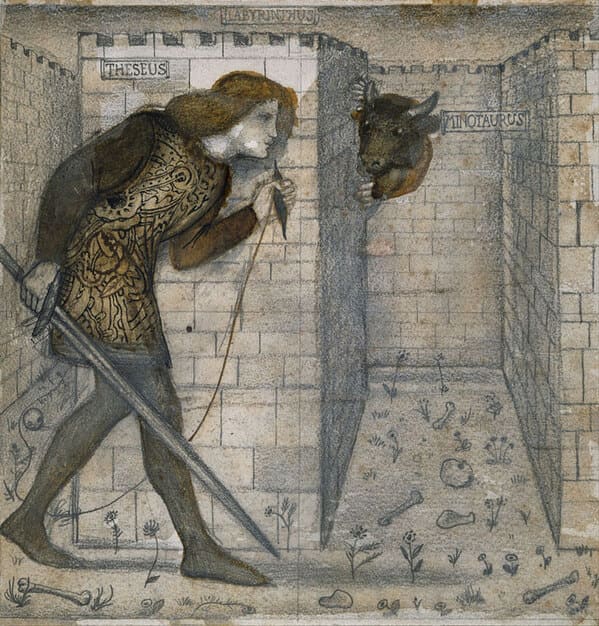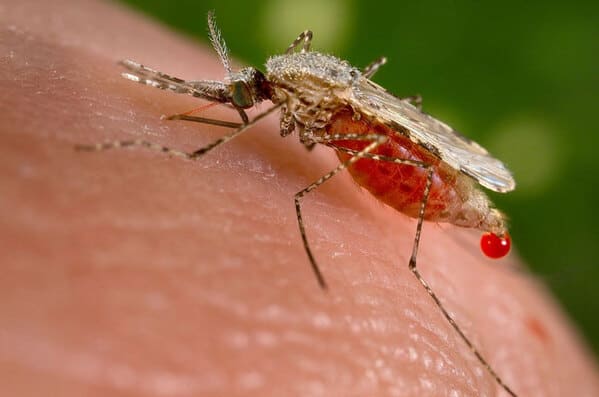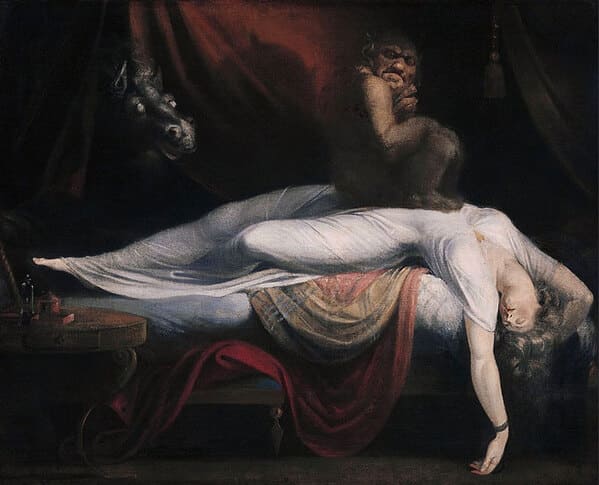Etymology is the study of the history and evolution of words. Some words, known as “ultraconserved words,” have been in use for thousands of years.
A group of researchers has identified a list of 24 “ultraconserved words” that have been in use for over 150 centuries. The list includes some expected words such as “mother,” “not,” “what,” “to hear,” and “man,” as well as unexpected words like “to flow,” “ashes,” and “worm.”
The English language is constantly expanding, with around 5,400 new words being added annually. However, not all of these words are widely used or printed. Despite frequently using words, we may not be aware of their origins.
To learn more about the interesting histories of words, we can refer to sources such as this thread which shares a list of surprising stories about the origins of words.
1.
I just learned this one today. The etymology of the word clue: The word clue originates with the myth of Theseus, who used a ball of yarn to find his way back out of the minotaur’s labyrinth. The middle English word for a ball of yarn was clew (or clewe); when the myth was popularized in England by Chaucer, people started using the word clew figuratively to mean a hint or guide to solving a problem.
2.
The word “bear” in many languages in Europe (including English) just means “brown thing”. There used to be a proper name for bear, but it was taboo because saying it was believed to summon a bear, who would then kill everyone. It was so taboo it was eventually forgotten and the euphemism (brown thing) became the name.
Ancient people were scared pissless by bears.
3.
The word apron was originally napron.
But when people said “a napron” it got gradually transformed into “an apron”.
(I have no bug facts.)
— RunDNA
4.
The word “quintessential” has one of my favorite etymologies.
You can break it down into “quint” and “essential.” Quint as in “five.” “Essential” as in “essence,” or “element.” To be quintessential is to be the fifth element of something. To be the thing’s spirit.
— Sedu
5.
Malaria
Malaria is an infectious disease characterized by chills and fever and caused by the bite of an infected anopheles mosquito.
This word comes from the medieval Italian mal (bad) and aria (air), describing the miasma from the swamps around Rome.
This “bad air” was believed to be the cause of the fever that often developed in those who spent time around the swamps. In fact the illness, now known as malaria, was due to certain protozoans present in the mosquitos that bred around these swamps, and which caused recurring feverish symptoms in those they bit.
6.
The etymology of “tawdry” is a real ride.
There was a 7th century Anglo-Saxon saint named Æthelthryth. Now, nobody, not even 7th century Anglo-Saxons, wants to go around trying to pronounce that dense forest of th’s, so she was commonly known as St. Etheldreda, and later, linguistically lazier people called her St. Audrey.
St. Audrey was the patron saint of a town called Ely, and the folks of Ely held a fair every year in her name. One of the primary products on offer at these fairs was lace. “St. Audrey’s lace” was said a few too many times, and got slurred down to “tawdry lace.”
Over time, the lace fell out of favor. It was mainly made by peasant women, and thus viewed as cheap, and the Puritans looked down on lace garments of any kind as ostentatious. “Tawdry” then began to be used to describe other things that were cheap and ostentatious, and the modern definition of the word was born.
— Rromagar
7.
Etymology: Nightmare. The “mare” part of the word “nightmare” comes from Germanic folklore, in which a “mare” is an evil female spirit or goblin that sits upon a sleeper’s chest, suffocating them and/or giving them bad dreams. So basically the word comes from a description of sleep paralysis.
Entomology: Honeybees have to make about ten million trips to collect enough nectar for the production of one pound of honey.
8.
Roger is just the modern English equivalent of the Old English and Old Norse name Hrothgar.
Edit: Additionally, Hrothgar means “famous spear”, and is the name of the Danish King in the medieval epic poem Beowulf.
9.
Etymology: Cliche, is derived from the sound of dapping ink on a typeface – anyone who has used an ink roller will understand the sound of sticky ink – so it’s the repeated sound of a regularly and therefore overused piece of type …
Entomology: Australia has/had a massive problem with the build-up of the animal waste following the introduction of cattle – native dung beetles only worked with hard dry dung of marsupials and wouldn’t touch the cow pats of imported cows
10.
Etymology: Nimrod was originally a compliment referring to one’s hunting skills (Nimrod being a biblical figure known for his ability to hunt), but the definition changed because people didnt understand Bugs Bunny was calling Elmer Fudd a Nimrod sarcastically
Entomology: earwigs have wings, and can fly
— Seevian
11.
Entomology: you can kill cockroaches with plain isopropyl alcohol in a spray bottle. You don’t need to buy those special bug sprays if you only need to kill them on the spot. Spray them, and don’t stop, because they will try to run away, but they’ll die after a couple of minutes. Try to catch them in a can, spray the shit out if then with alcohol and they’ll die.
Works because they dry out and die. Never had to resort to a broom. Also, more environmentally safe and won’t hurt your pets!
12.
Etymology: The word “avocado” comes from the Aztec word for testicle. That’s literally the only one I can think of right now.
Entomology: The largest insect on Earth—the weta—has a unique survival mechanism. When winter rolls around, they die. They physically die. There is no heartbeat or brain activity, and their brains rot. Nobody knows how they do it, but the moment the weather warms up and the frozen weta thaw, even without their brains, their hearts restart, and they go on to breed before dying for real.
Also, they hiss. Good luck with that.
— Sebaren
13.
Etymology: calcium, calculator, calculate, calculus, and abacus all share an origin in the word ‘calx’, Latin for stone.
14.
In Greek mythology, Hades had a giant three-headed dog named Cerberus that guarded the entrance to the land of the dead. Cerberus comes from an older Sanskrit word, Kerebos, meaning “spotted”. So Hades, a literal Greek god, has a Hellhound named Spot.
Disclaimer, I am not an etymologist, and this is disputed. I still like it
15.
Etymology: melon- not particularly interesting in itself, it came from Ancient Greek, through Latin, to Old French, before finding its way to English. All along the way, it referred to various gourds. However, and this is the interesting bit, melons was slang for boobs in Greek, and it retained this slang definition as well as its “real” definition all the way to English. Usually, in etymology, you keep one definition or the other, and never both, which makes it really interesting. Also boobies.
Entomology: The Japanese Red Bug, in addition to having the most creative bug name ever, is one of the few known non-eusocial (eusocial – colony bugs like ants, bees, termites) insects to take care of its young after they hatch.
— KaiF1SCH
16.
The word entomology is from the Greek entomon, meaning “insect”, which is itself the neuter form of entomos, meaning “segmented.”
17.
Etymology: Dashboard
The dashboard is a board on the front of a horse carriage meant to keep mud from kicking up on the passengers when the horse dashes.
And over time it came to mean the front part of anything, even a computer interface is sometimes called a dashboard.
18.
Orange
The word for the fruit came long before the word for the colour. We just called things which were the colour orange, yellow-red.
Additionally, William of Orange (William III of England) has nothing to do with either the colour or the fruit.
19.
Etymology: Shibboleth was a Hebrew word for a part of a plant. But at one point it was used to determine whether someone belonged to one cultural group or another because the groups pronounced the word differently. Now, it refers to words and phrases like those that “out” someone as part of a particular group whether it’s by pronunciation or understanding. For example, get a native German speaker to say “squirrel” and they almost definitely won’t be able to.
Entomology: Some wasps inject their eggs into a host and the host gets mind controlled to protect the developing babies. The interesting thing is that it’s not the eggs that control the host but a virus that the wasp injects along with the eggs.
20.
The word “barbarian” comes from an Ancient Greek word referring to all non-Greek speakers (including Egyptians, Phoenicians, etc.) This was because to the Greeks, all other languages sounded like people saying “bar bar bar”. This became the root for the word βάρβαρος (bárbaros), which roughly means “babble” or “gibberish”.
It was later adopted by the Romans to refer to any culture that did not practice Greek or Roman traditions (even though Latin-speakers were technically classified as barbarians because they didn’t speak Greek). Due to good old xenophobia, it eventually came to mean “uncivilized”, and from there it made its way through the centuries into Middle English.
21.
Pumpernickel – comes from the German words pumpern (“to break wind”) and Nickel (“goblin”), apparently due to its indigestibility..
Their bread is so coarse it would make the devil break wind.
<1756 “Their bread is of the very coarsest kind, ill baked, and as black as a coal, for they never sift their flour. The people of the country call it POMPERNICKEL.”—‘The Grand Tour; or, A Journey Through the Netherlands, Germany, Italy, and France’ by Thomas Nugent, II. page 80>
— MuadDave
22.
The word oxymoron: the word oxymoron itself, appropriately enough, is an oxymoron. The oxy– part (the same as in words like oxygen, paroxysm and peroxide) comes from the Greek word for “sharp” or “acrid”, oxys. The –moron part (the same as in—well, moron) comes from the Greek word for “dull”, moros. So an oxymoron is literally a “sharp-dull” turn of phrase.
23.
Etymology: the word helicopter is a compound word derived from “helico” meaning roughly “spiral thing” and “pter” meaning roughly “flying thing”. As in pterodactyl.
The compound word is helico-pter, not heli-copter like everyone thinks.
Entomologist: cochineal dye, derived from crushed up insects, is still used as a red dye in the food industry.
24.
Ampersand (&) used to be a letter in the English alphabet. It came after Z in the in alphabet.
In the alphabet song, after you finished with Z, kids would sing: “and per se and” which is where the name ampersand comes from. “And per se and” basically means “also and as itself”.Ampersand (&) used to be a letter in the English alphabet. It came after Z in the in alphabet.
In the alphabet song, after you finished with Z, kids would sing: “and per se and” which is where the name ampersand comes from. “And per se and” basically means “also and as itself”.
25.
I love the origin of “Berzerk.” It comes from old Norse for “bear-shirt”, where vikings would put on shirts made of the hide of skinned bears and I guess get possessed by the spirit of the bear and just go absolutely apeshit on whatever












